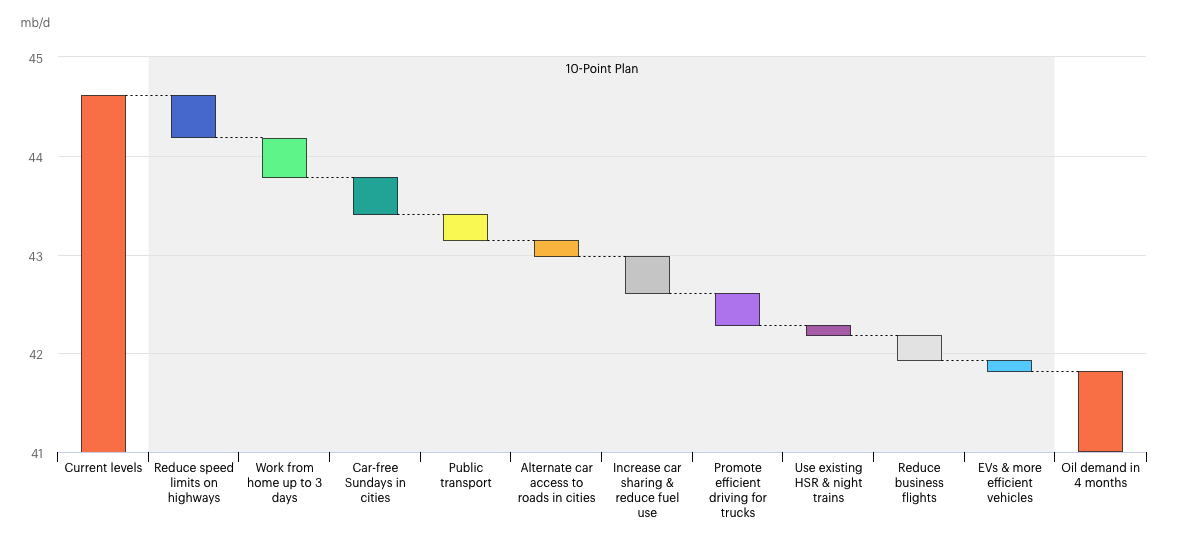10-point plan: How can we quickly reduce our oil consumption

The Ukraine war and soaring fuel prices have (once again) made the world, and Europe in particular, aware of the need for a rapid phase-out of fossil fuels. The USA and Canada have already imposed an import ban on Russian oil, and Great Britain intends to follow at the end of the year. “The IEA’s latest Oil Market Report on 16 March identified the potential for a shut-in of 2.5 million barrels a day of Russian oil exports starting from April,” the International Energy Agency (IEA) stated.
Mobility is the big sticking point
But a 10-point plan that the IEA suggests could cut oil demand in advanced economies by 2.7 million barrels a day over the next four months. “The majority of oil demand is in transport, so the proposed measures of the 10-Point Plan essentially focus on how we get from A to B. How these measures are implemented is subject to each country’s own circumstances – in terms of their energy markets, transport infrastructure, social and political dynamics, and other aspects,” IEA says.
The IEA proposes 10 points for action:
- Reduction of the speed limits on highways by at least 10 km/h
- Work from home up to three days a week if possible
- Car-free Sundays in large cities
- Make public transport cheaper and encourage micro-mobility, walking, and cycling
- Alternate private car uses in large cities
- More car sharing and adoption of fuel-decreasing practices
- Promote efficient truck driving and delivery of goods
- Use of high-speed and night trains instead of airplanes wherever possible
- Avoid business flights if there are alternative options
- Encourage the adoption of electric vehicles and more efficient vehicles
Many of these measures are not a surprise, some cities or countries are already implementing them or people are living them anyway. However, through the comprehensive implementation of these ten points, the IEA expects a really measurable reduction in oil consumption within four months.






























